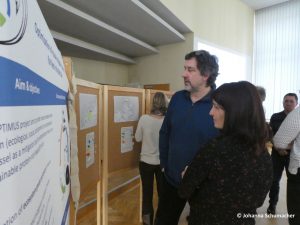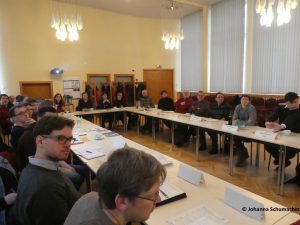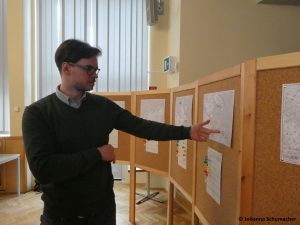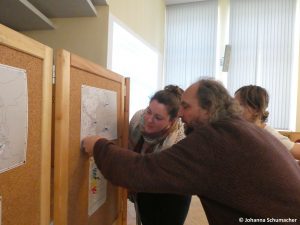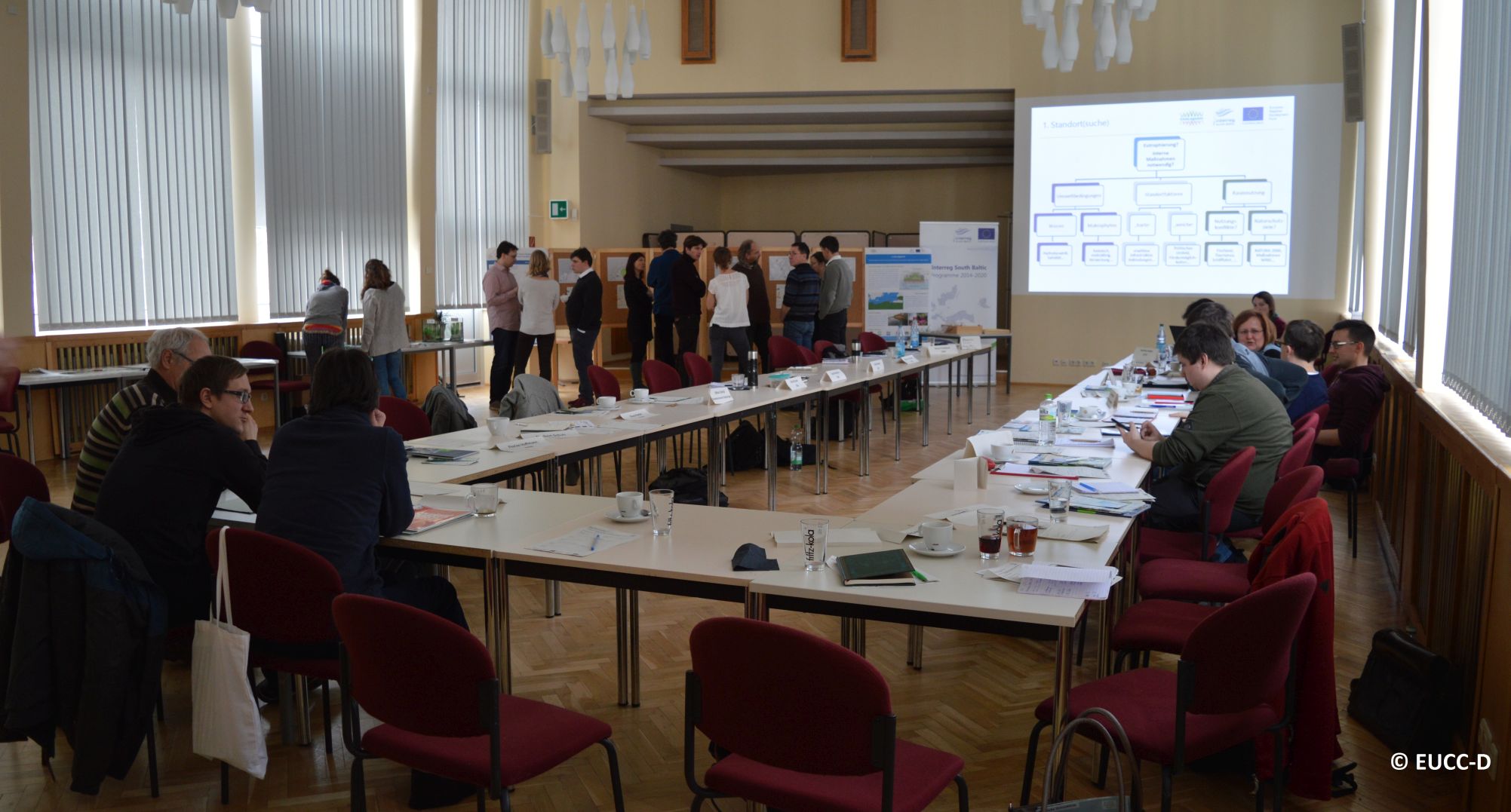The idea behind floating wetlands was introduced to various stakeholders from politics, tourism, business, science and environmental protection during our first German workshop on the 23rd of January 2018. Favored sites, island design, choices of emergent macrophytes and installation challenges were presented and lively debated.
Workshop participants were invited to share their knowledge and to “flag” potential locations for internal nutrient reduction measures in German coastal waters: Blue flags for mussel farms, green for floating plant islands, yellow for mechanical measures such as sediment dredging, red for chemical measures such as phosphorus precipitation with aluminum and white flags at locations where no internal measures should take place. In one point, all participants agreed: Chemical measures in coastal zones have no acceptance so far and the red flags were left unused.
The workshop was organized by the Coastal Union Germany (EUCC-D) in co-operation with the Leibniz Institute for Baltic Sea Research Warnemünde (IOW) and the BONUS Optimus project.
